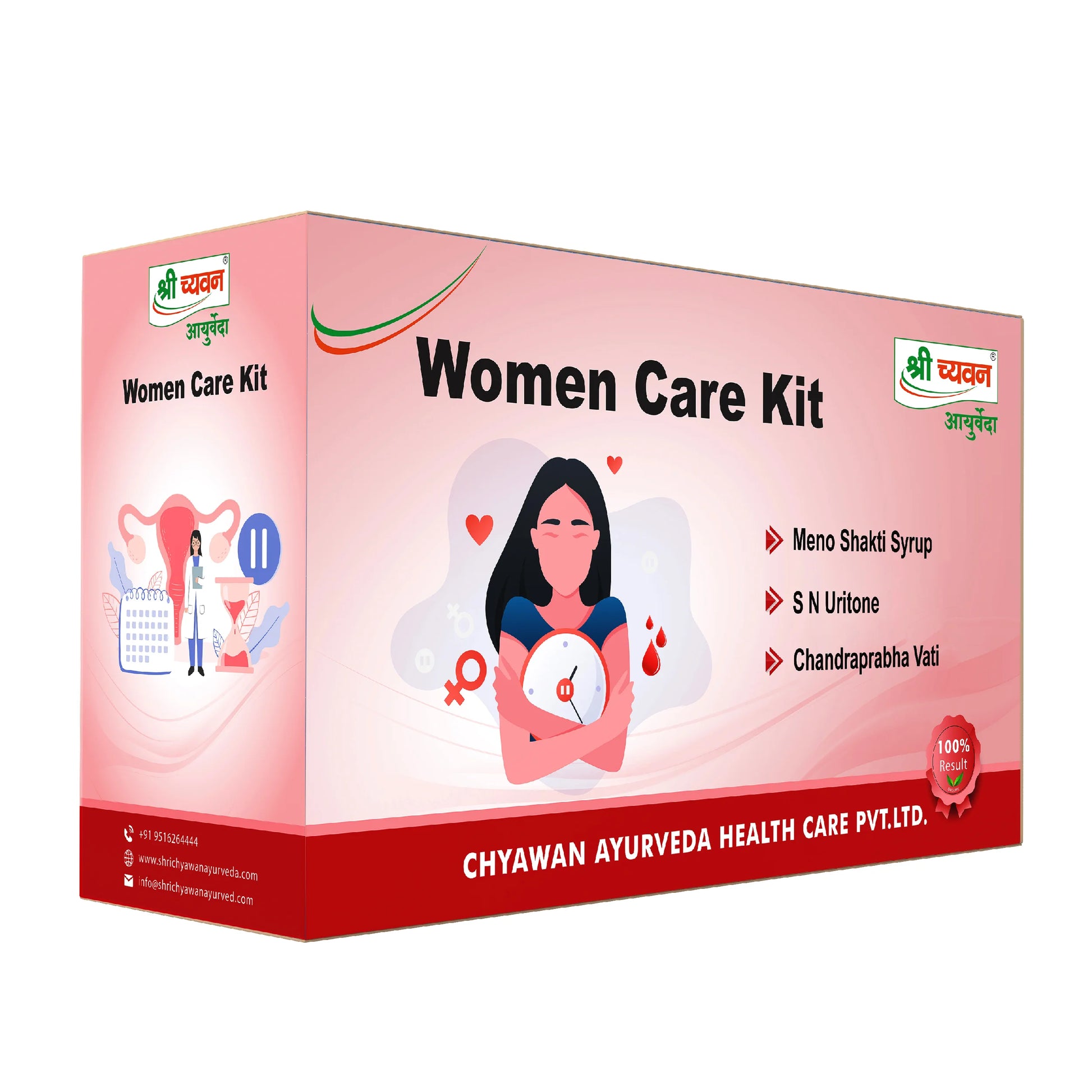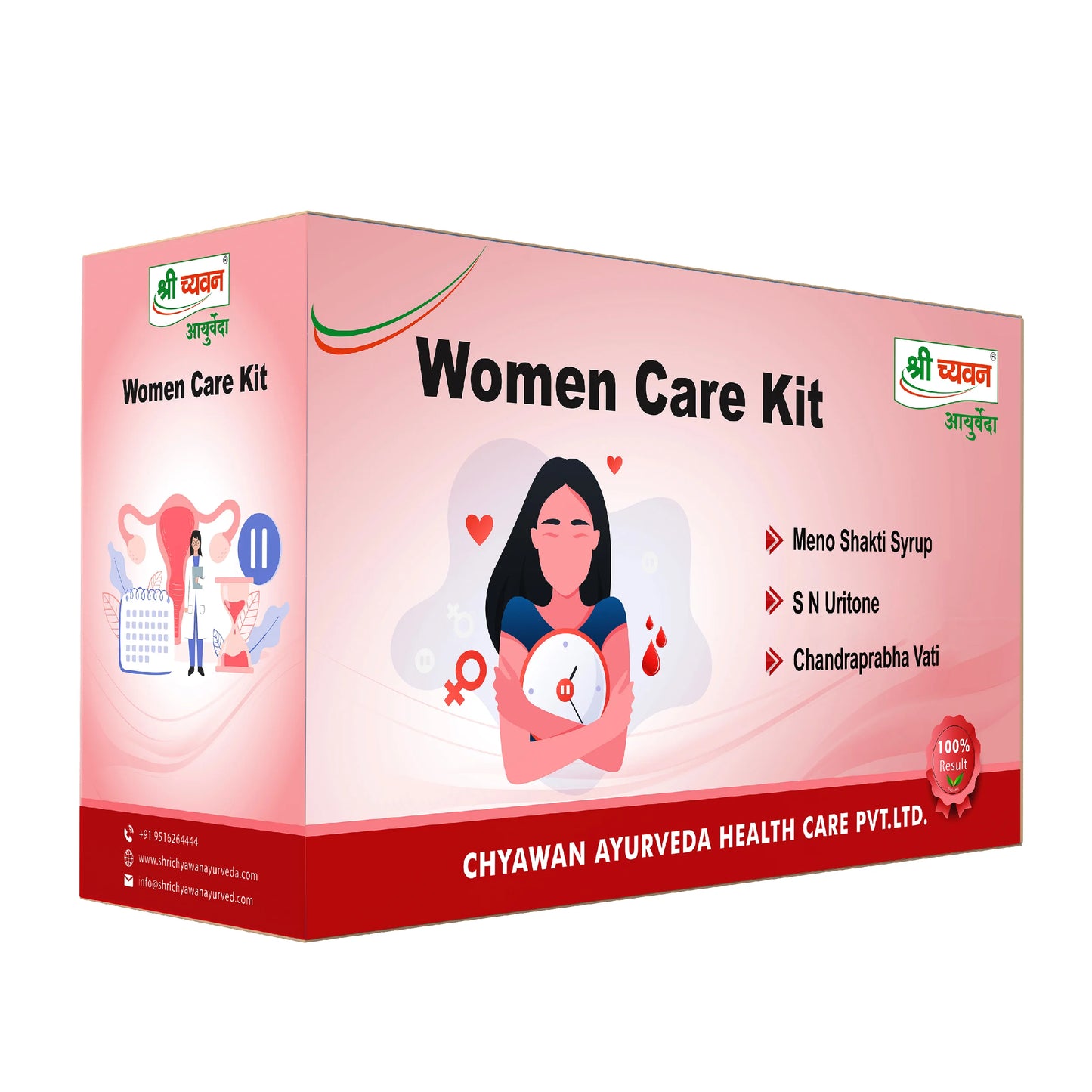Women's health is a topic of profound importance, encompassing physical, mental, and emotional well-being. Ayurveda, an ancient system of holistic healing, offers a unique perspective on women's health by recognizing the intricate interplay between the female body, hormonal balance, and overall vitality. In this blog post, we will explore how Ayurveda addresses women's health issues, emphasizes hormonal balance, and provides valuable self-care practices to enhance the quality of life for women.
Understanding the Ayurvedic Approach
Ayurveda views each individual as a unique combination of the three doshas: Vata, Pitta, and Kapha. In the context of women's health, it acknowledges the cyclical nature of a woman's body, which is influenced by her menstrual cycle, hormonal fluctuations, and various life stages. By understanding the inherent qualities of these doshas and their impact on women's physiology, Ayurveda offers personalized guidance to maintain balance and well-being.
Women's health holds significant importance in Ayurveda, an ancient holistic system of medicine that recognizes the unique needs and physiology of women at different stages of life. Ayurveda places a strong emphasis on the well-being of women, understanding the profound influence they have on the health of their families and communities. Here are several key aspects highlighting the importance of women's health in Ayurveda:
- Respect for Women's Natural Cycles: Ayurveda recognizes the importance of women's menstrual cycles as a vital indicator of overall health. Regular and healthy menstruation is seen as a sign of balanced doshas (Vata, Pitta, Kapha) and optimal well-being. Ayurveda offers insights into maintaining a harmonious menstrual cycle through lifestyle, diet, and herbal recommendations.
- Ayurvedic Approach to Pregnancy: Ayurveda has a comprehensive approach to pregnancy care, focusing on the physical, mental, and emotional well-being of both the mother and the developing baby. Prenatal care in Ayurveda includes dietary guidelines, herbal support, and recommendations for a peaceful and nurturing environment to support a healthy pregnancy.
- Postpartum Recovery: The postpartum period is given special importance in Ayurveda. Nurturing the mother during this time is considered essential for her overall health and the health of her baby. Ayurvedic practices such as Abhyanga (oil massage), nourishing meals, and restorative herbal formulations help women recover strength and balance after childbirth.
- Menopause Support: Ayurveda acknowledges the transitional phase of menopause in a woman's life and provides guidance to navigate it with grace and minimal discomfort. Individualized recommendations for diet, herbs, and lifestyle adjustments during menopause help ease symptoms and maintain hormonal equilibrium.
- Holistic Approach to Women's Wellness: Ayurveda views women's health holistically, addressing physical, mental, and emotional aspects. The unique constitution of each woman is taken into account, allowing for personalized recommendations to promote balance and vitality.
- Embracing Self-Care: Ayurveda encourages women to prioritize self-care as a cornerstone of their well-being. Practices like Abhyanga (self-massage), yoga, meditation, and mindful eating are recommended to nurture the body and mind.
- Impact on Family and Society: Women play a central role in the health and well-being of their families. Ayurveda recognizes this influence and supports women in maintaining their health, as their vitality directly impacts the health of future generations.
- Empowerment and Empathy: Ayurveda empowers women to understand their bodies, make informed choices, and take control of their health. It fosters empathy and compassionate care, recognizing the unique challenges that women face throughout their lives.
By honouring and addressing the specific needs of women, Ayurveda contributes to the overall well-being of individuals, families, and communities. The personalized, holistic approach of Ayurveda makes it a valuable system of medicine for women to lead healthy, balanced lives. It is essential for women to consult qualified Ayurvedic practitioners to receive personalized guidance tailored to their unique constitution and life circumstances.
Hormonal Harmony
One of the key aspects of women's health is maintaining hormonal balance. Hormones play a vital role in regulating various bodily functions, from reproductive health to emotional stability. Ayurveda recognizes the importance of balanced hormones in ensuring optimal health for women. Here are some Ayurvedic insights into hormonal harmony:
- Dietary Balance: Ayurveda suggests that incorporating a diet that aligns with your dosha can have a significant impact on hormonal balance. Foods with natural phytoestrogens, such as flaxseeds and soy, can be beneficial. Additionally, nurturing healthy digestion with warming spices like ginger and turmeric supports hormonal equilibrium.
- Herbal Support: Ayurvedic herbs like Shatavari and Ashwagandha are known for their hormone-balancing properties. These herbs can be included in your daily routine under the guidance of an Ayurvedic practitioner.
- Lifestyle Practices: Practicing stress-reduction techniques like yoga, meditation, and pranayama (breath control) can help regulate stress hormones and promote hormonal balance. Regular exercise is also important for overall health.
Ayurvedic Wisdom for Women's Health:
- Menstrual Health: Ayurveda views a regular and painless menstrual cycle as a sign of good health. To support healthy menstruation, Ayurveda recommends nurturing the body during the menstrual period and are extremely effective for the same. Also, maintaining a balanced diet, staying hydrated, and practicing gentle yoga or walking helps improve menstrual health.
- Pregnancy and Postpartum Care: Ayurveda emphasizes the importance of nourishing both the mother and the growing baby during pregnancy. Special attention is given to the postpartum period, with practices like Abhyanga (self-massage) and nutritious postpartum meals to aid recovery and hormonal balance.
- Menopause: The transition into menopause is a significant phase for women. Ayurveda recognizes the unique challenges and changes that occur during this time. Personalized recommendations for diet, herbs, and lifestyle adjustments can alleviate discomfort and support a smoother transition.
Self-Care Practices
Ayurveda places great emphasis on self-care as a foundational pillar of well-being. Here are some self-care practices from an Ayurvedic perspective that women can incorporate into their daily routines:
- Daily Oil Massage (Abhyanga): Massaging the body with warm oil nourishes the skin, promotes circulation, and calms the nervous system. This practice can help reduce stress, balance hormones, and enhance overall vitality.
- Yoga and Meditation: Engaging in gentle yoga poses and meditation tailored to your dosha can support hormonal balance, reduce stress, and promote emotional well-being.
- Mindful Eating: Eating mindfully, without distractions, and choosing nourishing, whole foods is essential for hormonal health. Ayurveda recommends savoring each meal, chewing well, and eating according to your body's signals.
- Quality Sleep: Prioritizing restful sleep is crucial for hormonal balance. Create a calming bedtime routine, maintain a regular sleep schedule, and create a comfortable sleep environment.
Ayurveda offers a holistic approach to women's health, addressing hormonal balance, and nurturing well-being through personalized recommendations and self-care practices. By understanding the interplay of doshas, embracing dietary and lifestyle adjustments, and incorporating Ayurvedic wisdom into daily routines, women can experience improved hormonal harmony, enhanced vitality, and a deeper connection with their overall health. Seek guidance from a qualified Ayurvedic practitioner to tailor these practices to your unique constitution and health needs, and embark on a journey of holistic wellness.








